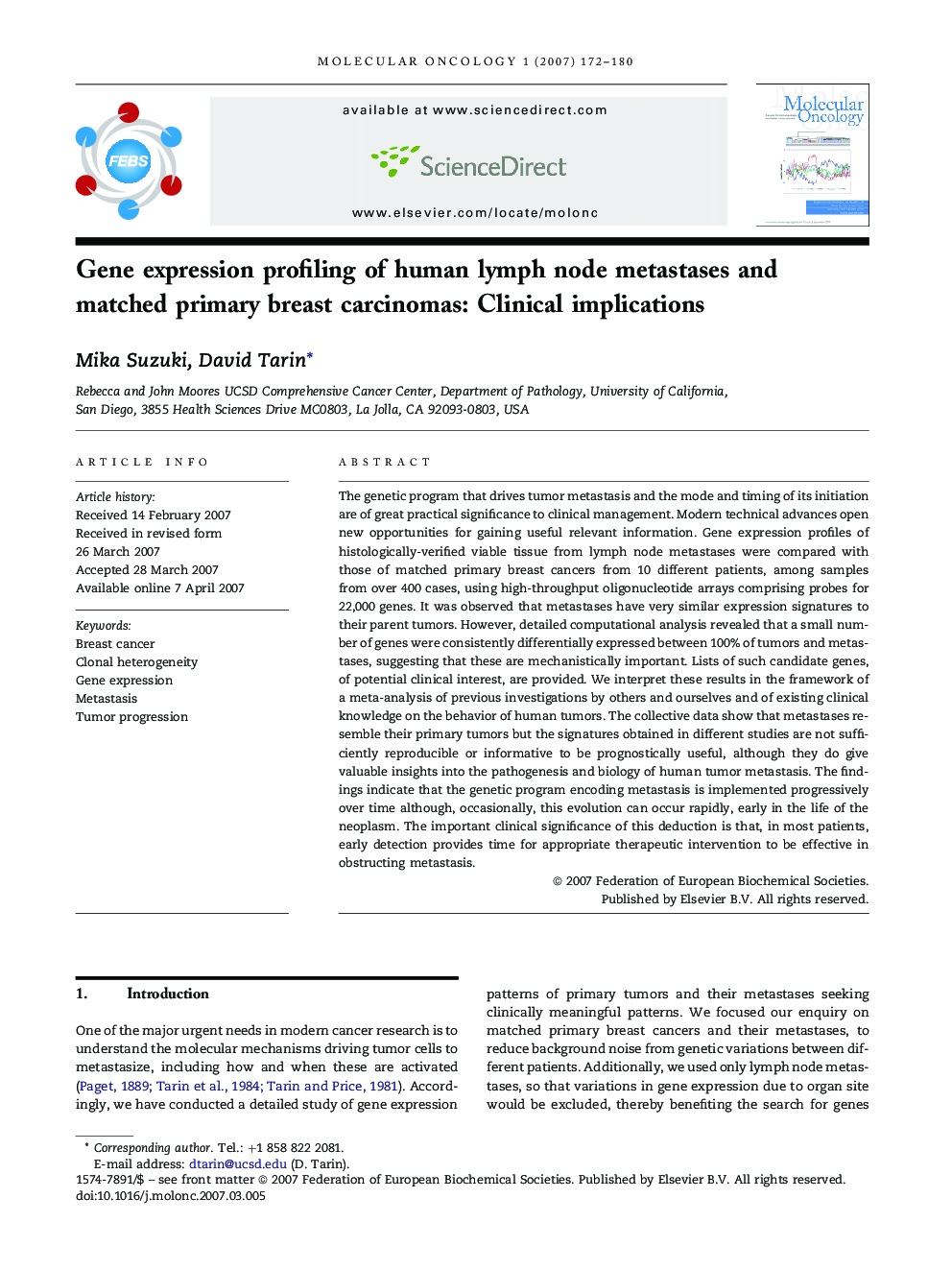| Article ID | Journal | Published Year | Pages | File Type |
|---|---|---|---|---|
| 2145937 | Molecular Oncology | 2007 | 9 Pages |
The genetic program that drives tumor metastasis and the mode and timing of its initiation are of great practical significance to clinical management. Modern technical advances open new opportunities for gaining useful relevant information. Gene expression profiles of histologically-verified viable tissue from lymph node metastases were compared with those of matched primary breast cancers from 10 different patients, among samples from over 400 cases, using high-throughput oligonucleotide arrays comprising probes for 22,000 genes. It was observed that metastases have very similar expression signatures to their parent tumors. However, detailed computational analysis revealed that a small number of genes were consistently differentially expressed between 100% of tumors and metastases, suggesting that these are mechanistically important. Lists of such candidate genes, of potential clinical interest, are provided. We interpret these results in the framework of a meta-analysis of previous investigations by others and ourselves and of existing clinical knowledge on the behavior of human tumors. The collective data show that metastases resemble their primary tumors but the signatures obtained in different studies are not sufficiently reproducible or informative to be prognostically useful, although they do give valuable insights into the pathogenesis and biology of human tumor metastasis. The findings indicate that the genetic program encoding metastasis is implemented progressively over time although, occasionally, this evolution can occur rapidly, early in the life of the neoplasm. The important clinical significance of this deduction is that, in most patients, early detection provides time for appropriate therapeutic intervention to be effective in obstructing metastasis.
